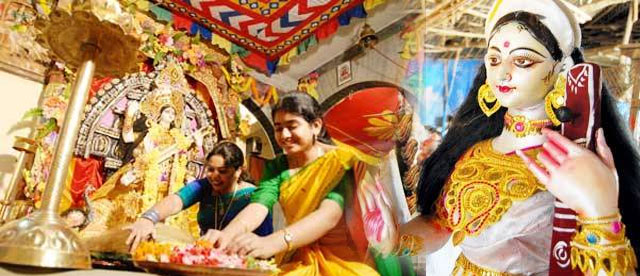'Basant Panchami' is a Hindu festival celebrating Saraswati, the goddess of knowledge, music and art. It is celebrated throughout the India. It is celebrated every year on the fifth day (Panchami) of the Magh month according to Hindu Calander.
Vasant Panchami has a specific meaning: Vasant means "spring,"and Panchami means "the fifth day." Vasant Panchami falls on the fifth day of spring.
The festival is observed in the northern part of the Subcontinent. Although it is notified in the ritual calendar of South India, it is not celebrated as a household or public event but in temples as a religious festival.The same rings true of the central region of Madhya Pradesh.
Basant Panchami marks the end of the winter season. In this festival the kids are taught to write their first words according to the Hindu Custom. People usually wear yellow garments in this festival. Goddess of knowledge, Devi Saraswati is worshipped all over the country.Yellow sweets are consumed within the families. Everyone enjoy the festival with great fun and enthusiasm.
May the occasion of Basant Panchami, Bring d wealth of knowledge to u,May u get blessed by Goddess Saraswati& Seasonsway.com Wishing You a
Happy Basant Panchami
Happy Basant Panchami
FOLLOW LINKS
Seasonsway.com



























